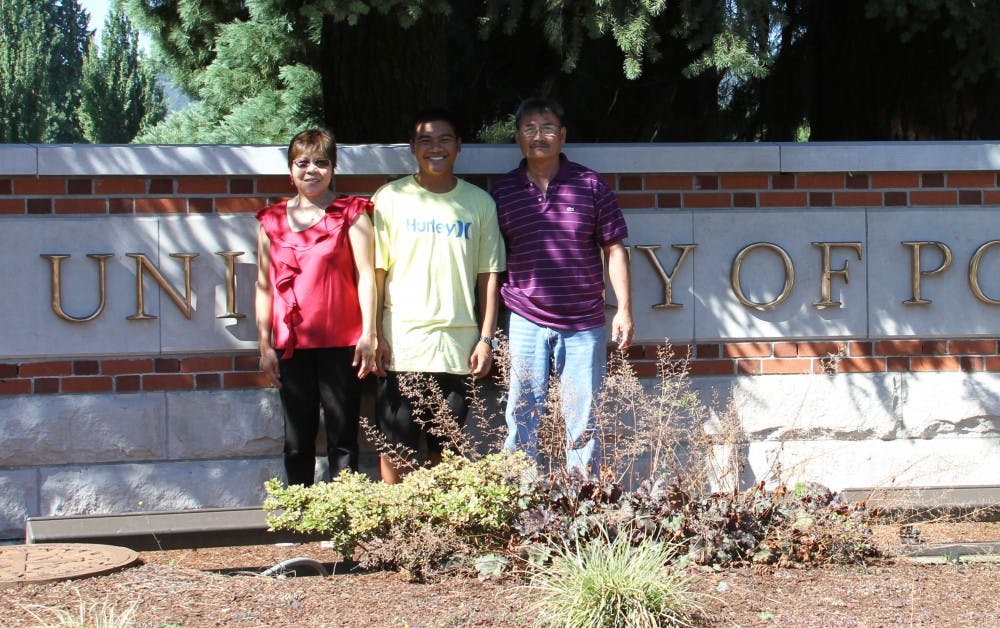Alina Rosenkranz |
Parents will be arriving on campus in droves tomorrow for Junior Parents and Families Weekend. According to a recent study, that means the majority of juniors will spend the weekend hanging out with their best friend.
According to a study conducted by the Benenson Strategy Group as part of the Fusion’s Massive Millennial Poll, 55 percent of 18-to 34-year-olds consider one of their parents their best friend.
Sophomore Tyler Gustavson, finance and economics major, says he grew closer to his parents since he started college and moved out.
“Since I’ve come to college it’s changed so that I’m not just like their son anymore,” Gustavson said. “I’m super good friends with my dad now. We hang out all the time.”
Sociology professor Bryan Rookey is skeptical about the results of the Massive Millennial Poll because it was done via phone, and doesn’t specify whether cell phone calls were included.
“We might be oversampling on kids or young adults who still live at home with their parents,” Rookey said. “So you are probably missing college students that are away from home.”
Despite his surprise about the outcomes of the survey, Rookey thinks a possible explanation for the majority of young adults to be best friends with their parents could be the economical living conditions.
Economic challenges, he said, like the rising cost of housing, job scarcity and education costs, might make young people stay close to home longer
“They are in need of each other more,” Rookey said.
This assumption ties in with the survey’s result that 46 percent of young adults still live at home with their parents and 40 percent say they receive financial support from their parents.
Sophomore Isaiah Ragasa, operations and technologies management major, doesn’t consider his parents his best friends, but thinks they are a support system for him.
“Coming to college actually strengthened our relationship even more,” Ragasa said. “Being that they have to trust me more with the decisions that I make. Being that I’m responsible for my own actions.”
Findings of the poll also showed that 65 percent have the same political affiliation as either of their parents.
Sophomore Markus Fuchs said that political beliefs do not define the parent-child relationship. He thinks that one should never forget who raised them and uphold the relationship to parents.
“Even if my parents don’t fully agree with a view, they might question it. But that doesn’t mean that they will ever support me less,” Fuchs said. “Our relationship is something that is based in love and trust.”
Alina Rosenkranz is a reporter for The Beacon. She can be reached at rosenkra17@up.edu.








